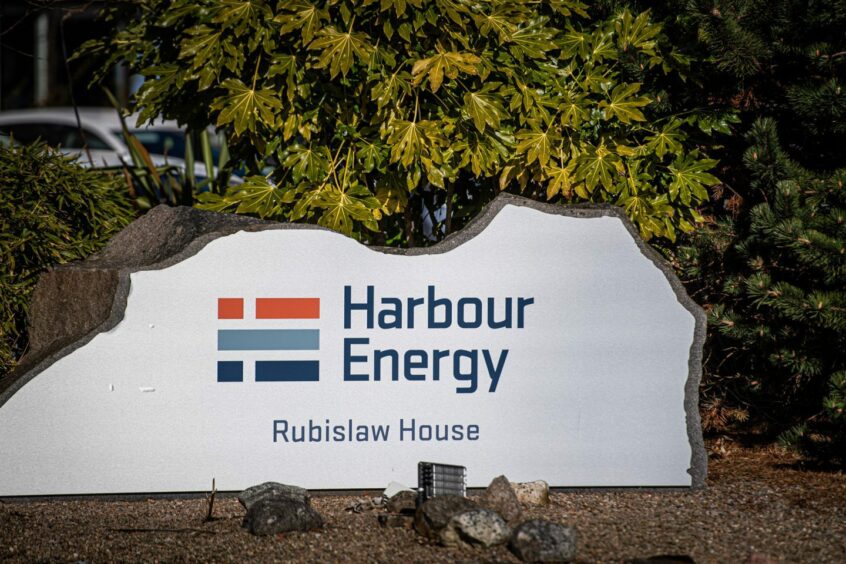
Harbour Energy (LON: HBR) expects to save around $40 million per year after it has made a swathe of job cuts in Aberdeen.
CEO Linda Cook told media this morning it was too soon to say how many jobs will be cut, but gave the savings figure as part of a wider attack on the UK Government’s windfall tax.
The levy has “wiped out” profits at the UK North Sea’s largest producer, who is now looking more closely at areas like Southeast Asia and Mexico for portfolio development.
Pre-tax, the firm booked $2.4bn of profits, but a one-off EPL payment, taking into account future sums for the tax through to 2028, took earnings after tax to just $8m.
It’s understood Harbour Energy intends to cut hundreds of roles from its North Sea base of Aberdeen, and the firm said today the review is expected to complete in the second half of this year.
Ms Cook said: “It’s too early to say how many job losses there will be. We do anticipate savings of somewhere around or upwards of $40 million a year, that would only start in 2024 after we’ve completed the review, which we expect to be done this year.”
Buybacks vs job cuts
Harbour Energy announced today that it is delivering $300m of shareholder dividends and buybacks.
That comes as workers are facing redundancy consultations.
Asked about the juxtaposition of the two, Ms Cook said the firm has to drum up investor support – and share price increases, which is one way of delivering that, were hit dramatically by the windfall tax.
“In 2022, that was our very first distribution to our investors ever. And a large portion of our investors have been invested since 2015 – for seven years they’ve waited for a distribution.
“Now, shareholder returns come in a couple of different ways. They come in share price appreciation and they can come through distribution.
“We were doing OK on share price appreciation until the EPL hit and our share price took a massive drop during 2022 as a result of the EPL.
“We were going to have, I think, real trouble continuing to secure investor support if we didn’t have other ways to reward them for supporting the company and so distributions played an important role in that.”
Bloated from Premier and Chrysaor merger?
It has been suggested that Harbour Energy remained “bloated” staff wise following the merger of Chrsyaor and Premier Oil, playing a role in the job cuts alongside the windfall tax.
Ms Cook conceded there may have been redundancies “absent the EPL” but said the levy remains the main reason for the cuts.
“I think it’s going to be hard to pinpoint once we come to a conclusion about the level of job losses, hard to pinpoint whether all of it is a result of the EPL or not.
“I mean we have put together theee organisations over the last few years. We concluded the initial kind of merger of those organizations back in 2021 and we’re just starting to see additional opportunities for some further efficiencies with the completion of our new enterprise management system or EMS late last year.
“So I expect we would have been seeing the opportunity for a bit of efficiency improvement or potential redundancies absent the EPL. But clearly the majority of it is driven by the fact that we’ll have lower investment levels going forward.”
‘Troublesome for companies like us’
The statement came amid a wider attack on the UK Government Energy Profits Levy (EPL), which no longer has a price floor which would remove the tax if oil and gas prices drop.
Updated in November, the EPL now means UK oil and gas companies are taxed at a 75% headline rate, and independent producers without international profits to bolster them tend to be harder hit.
Companies without major investment pipelines are also without the means of offsetting tax losses via allowances.
Ms Cook said: “It creates uncertainty since now you know we no longer have that that component in the EPL which allows for the tax falling away if prices normalize. If we look at oil and gas prices today, they’re actually lower than they were before the Russian invasion of Ukraine. Yet we’re now paying 75% tax, and that is particularly troublesome for companies like us.”
Would Harbour move its listing out of London?
As other firms like Shell are reported to be speculating a move outside of the UK, Harbour Energy was asked whether it would shift its listing off of London to an international market.
Ms Cook said she cannot confirm whether that’s been discussed, but said she sees the attractiveness of an area like the US.
“We’ve seen the recent reports that other UK companies are considering this and I understand you know the rationale for that, given the general difference in valuations.
“The, at least in the oil and gas sector, the more stable fiscal regime in the US and generally supportive investment climate, the incentives for things like CCS (carbon capture and storage), which we’re very active in are quite attractive there.
“So there’s, you know, a long list of reasons why companies might consider it.”
Harbour Energy is trading at £2.83 per share as of 9am.
Recommended for you


 © Supplied by Harbour Energy
© Supplied by Harbour Energy